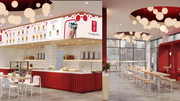Blog
Kiosks, digital signage deliver transformed smart cities
Smart cities have become increasingly more common as city officials attempt to transform themselves into more tech-savvy spaces to streamline public transit, improve services and raise revenue. Kiosks and digital signage are playing critical roles in these smart cities.

September 9, 2019 by Kiosk Marketplace
Smart cities have become increasingly more common as city officials attempt to transform themselves into more tech-savvy spaces to streamline public transit, improve services and raise revenue.
Kiosks role
Kiosks are playing a critical role in smart cities. They provide not only services for commuters but also gather data to a retailer owner, which delivers precisely personalized experiences from those smart city trends.
Gina Yang, product manager of Kiosk in Advantech said in an interview that kiosks can provide a variety of services such as:
- Wayfinding.
- Current events.
- Emergency notification.
- Self-checkout for local businesses.
- Advertisements.
- Wi-Fi and USB charging.
"Kiosks also bring advantages to business owners. Public organizations can improve their service level by implementing a wide range of smart self-service kiosks as an instant feedback terminal. These allow organizations to collect valuable user data at various and wide-range locations," Yang said, "Moreover, this data provides the owner to access information and services in the kiosk's cloud-based systems anytime, anywhere to make their business decision.
Furthermore, kiosks are useful for more than just delivering passive information to the user. The sensors in kiosks can even receive active information from the city, and provide dynamic changes to the environment, such as traffic patterns.
"Through applying a connected network and multiple sensors, kiosk collects, analyzes and optimizes the city services by dynamic data," Yang said.
However, kiosks aren't alone in this task, digital signage is also helping transform smart cities and retailers into even "smarter" spaces.
Digital signage's role
Digital signage improves smart cities by both offering information and enabling dynamic advertisements.
For example, train stations are growingly using digital signage to provide up-to-date information to commuters about arrival times, neighborhood maps and alternate routes.
Also, digital signage provides more direct, effective content to target-audiences, according to Yang.
"Digital signage is now able to provide more personalized messages and better customer engagement everywhere with the help of new applications, such as RFID, QR-code, or iBeacons," Yang said. "The information can be customized or interactive in an era of personalization where customers want to experience the hospitality services on their terms."
Advantech's role
For Advantech, an intelligent solutions provider, the key goal is to both influence user behavior and to help drive the next generation of intelligent services in all sectors of smart cities, including retail.
"Advantech aims to help our clients influence their user behavior and lead the next generation intelligent services in all business sectors. We offer a portfolio of the solution- and service-ready platforms with flexible, scalable, and user-centric solutions. These wide-range solutions included self-service kiosks, intelligent POS system, interactive multi-media system, equipment control system, digital signage solution, intelligent video analysis, and outpatient service solution," Yang said.
Beyond hardware, Advantech also focuses on delivering software that can easily interact with Internet-of-Things based solutions to boost overall customer experience.
"With cloud-based retail service platforms as a core focus, we have developed several solutions that target shopper engagement, cashier management, self-checkout AI recognition, operational support, and business intelligence," Yang said. "Advantech's goal shortly is to provide a one-stop retail technology integration service, which is not only optimized retail operations but also improve the customer experience while also providing competitive advantages."
 ChatGPT
ChatGPT Grok
Grok Perplexity
Perplexity Claude
Claude









